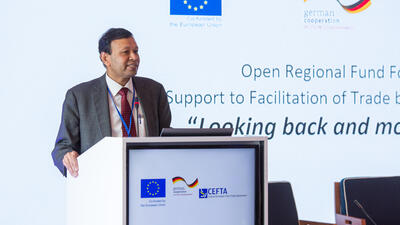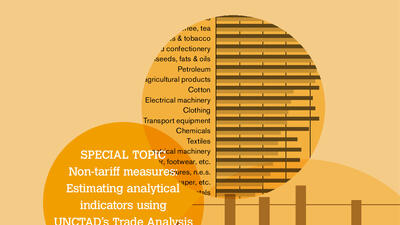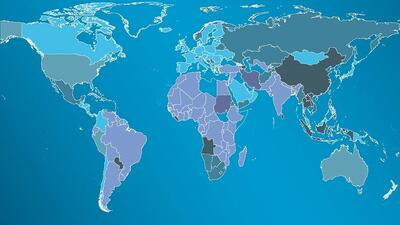Non-tariff obstacles to trade: The business perspective
Exporting companies seeking access to foreign markets and companies importing products need to comply with a wide range of NTMs, including technical regulations, product standards and customs procedures. NTMs vary across products and countries, and can change quickly, leaving the business sector lacking the information, capabilities and facilities to meet their complex requirements and demonstrate compliance at reasonable cost. While NTMs are a challenge for businesses in developing countries, national policymakers often lack a clear understanding of what their business sectors perceive as predominant obstacles to trade, making it difficult to develop the most appropriate trade-related policies.
The ITC programme on NTMs
ITC aims to increase transparency and assist countries to better understand the non-tariff obstacles to trade faced by their business sectors. In close collaboration with national and regional stakeholders, ITC is engaged in a multi-agency initiative that assists countries in finding solutions tailored to their specific needs. A sound understanding of the business perspective of NTMs is critical to identifying and defining national strategies and policies that help overcome barriers to trade. Businesses are best placed to inform decision makers on developing policies as they have first-hand experience in dealing with the key challenges.
ITC conducts large-scale surveys of companies in developing countries to improve knowledge of NTM barriers. Building on the experience and knowledge of export and import businesses in dealing with these barriers, the surveys are a viable and proven mechanism to deepen understanding of the perception of NTMs, which by their nature are hard to quantify. The surveys identify, at product, sector and partner country level, the predominant obstacles the business sector faces when complying with NTMs, as well as potential bottlenecks at the national level with regards to the capabilities and technical capacity to meet regulations and demonstrate compliance. The surveys enable targeted capacity building and better formulation of national strategies and policies. In particular, they identify:
• The most challenging NTMs by sector, company size and partner country;
• The existing national procedures and facilities that need to be strengthened in order to better support the business sector in exporting and importing goods;
• Gaps in understanding specific measures applied by certain countries or to specific products and resulting from a lack of access to relevant information.
The survey methodology includes a representative sample at the national and sector level, and covers exporting and importing companies, as well as forwarding agents. The sample is surveyed through phone screenings and in-depth, face-to-face interviews. Typically, the two-step approach of the survey includes 400 to 600 phone interviews and 150 to 300 face-to-face interviews per country. To support country specific requirements, each survey is implemented by a local partner in close collaboration with government officials, business associations, chambers of commerce and other stakeholders.
The survey methodology was tested in a pilot phase in six countries throughout 2008 and 2009. Since then, it has been successfully implemented in many developing countries, including least developed countries, landlocked countries, countries in sub-Saharan Africa and small island developing States. The programme aims to complete 27 surveys by the end of 2013. As of January 2012, more than 16,000 companies had been contacted and 6,300 have been interviewed, enabling domestic companies to voice their concerns and needs with regards to NTMs. At the same time, ITC has trained some 120 local experts and interviewers on the classification of NTMs and ITC's survey methodology, providing capacity building in this area.
First results
Survey results suggest a large proportion of companies are affected by NTM-related problems, most of which are technical measures. The impact is greatest on companies exporting from landlocked least developed countries. Surprisingly, many difficulties are related to NTMs applied by partner countries within regional trade agreements. Likewise, across countries, domestic impediments constitute a large share of reported obstacles.
Upon completion of a national survey, ITC, in close collaboration with national partners, provides an in-depth analysis of survey results. Local economists and specialists are engaged in the preparation of the country report, bringing in their expertise on country specificities and drawing attention to local particularities. The survey results are discussed in a national workshop that initiates and fosters a continual dialogue among different stakeholders, including the private sector, trade support institutions, government agencies and academics. The dialogue helps to identify needs for concrete action by policymakers in different export sectors, while trade support institutions and business associations better understand sector-specific challenges, enabling targeted support for businesses and the fostering of more transparent and dynamic commercial activity.













